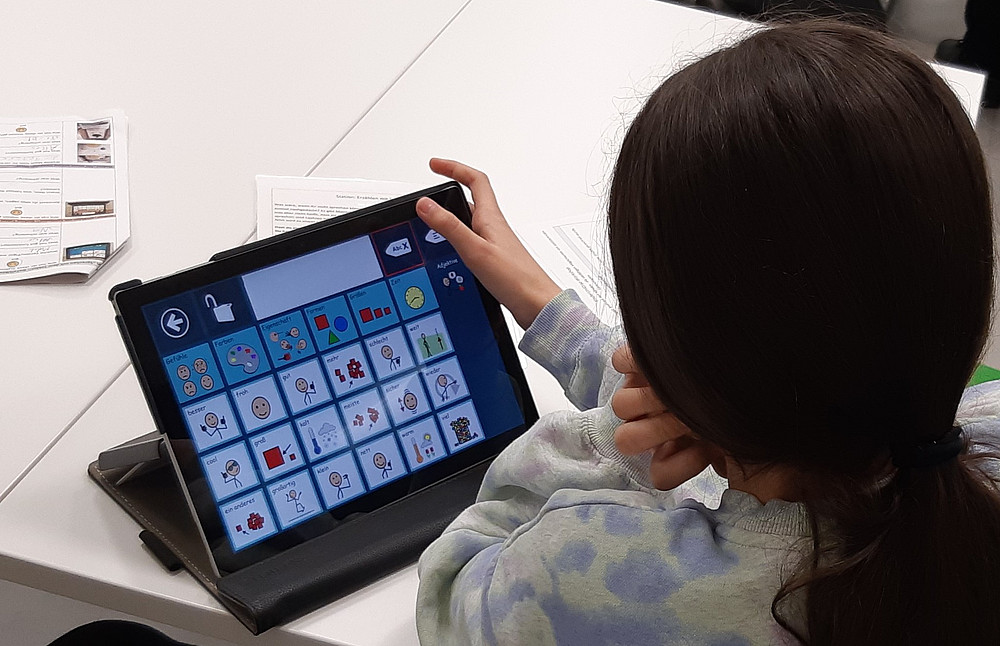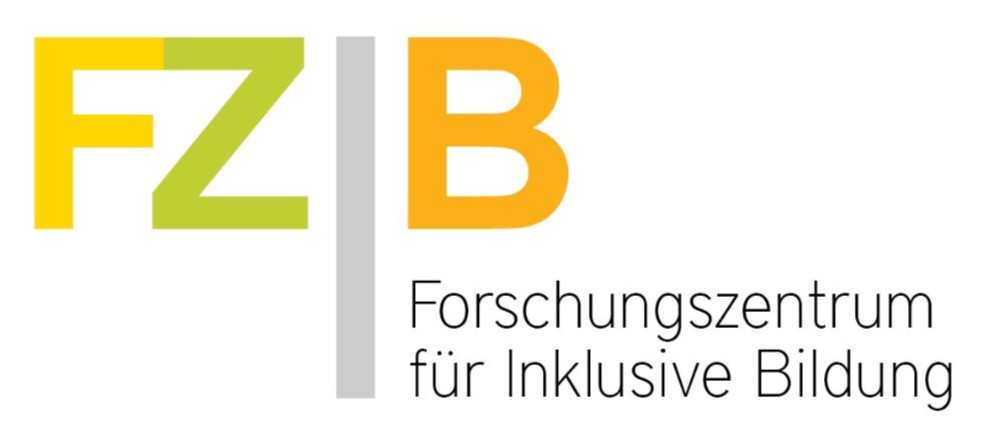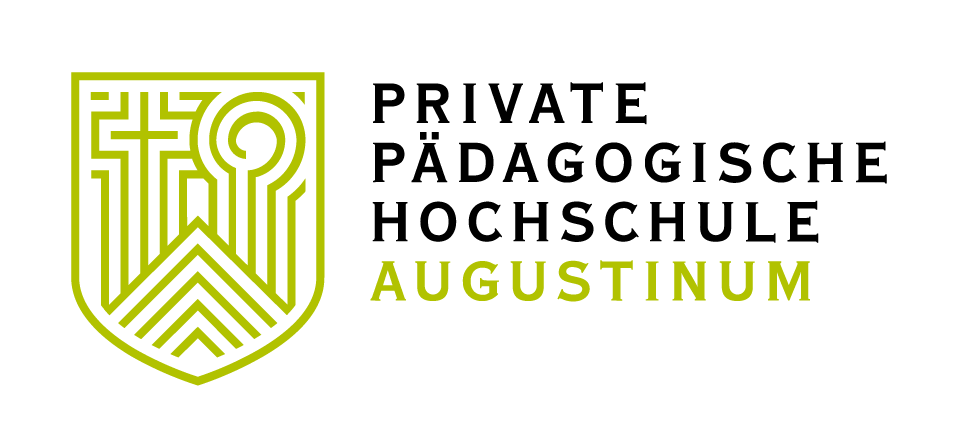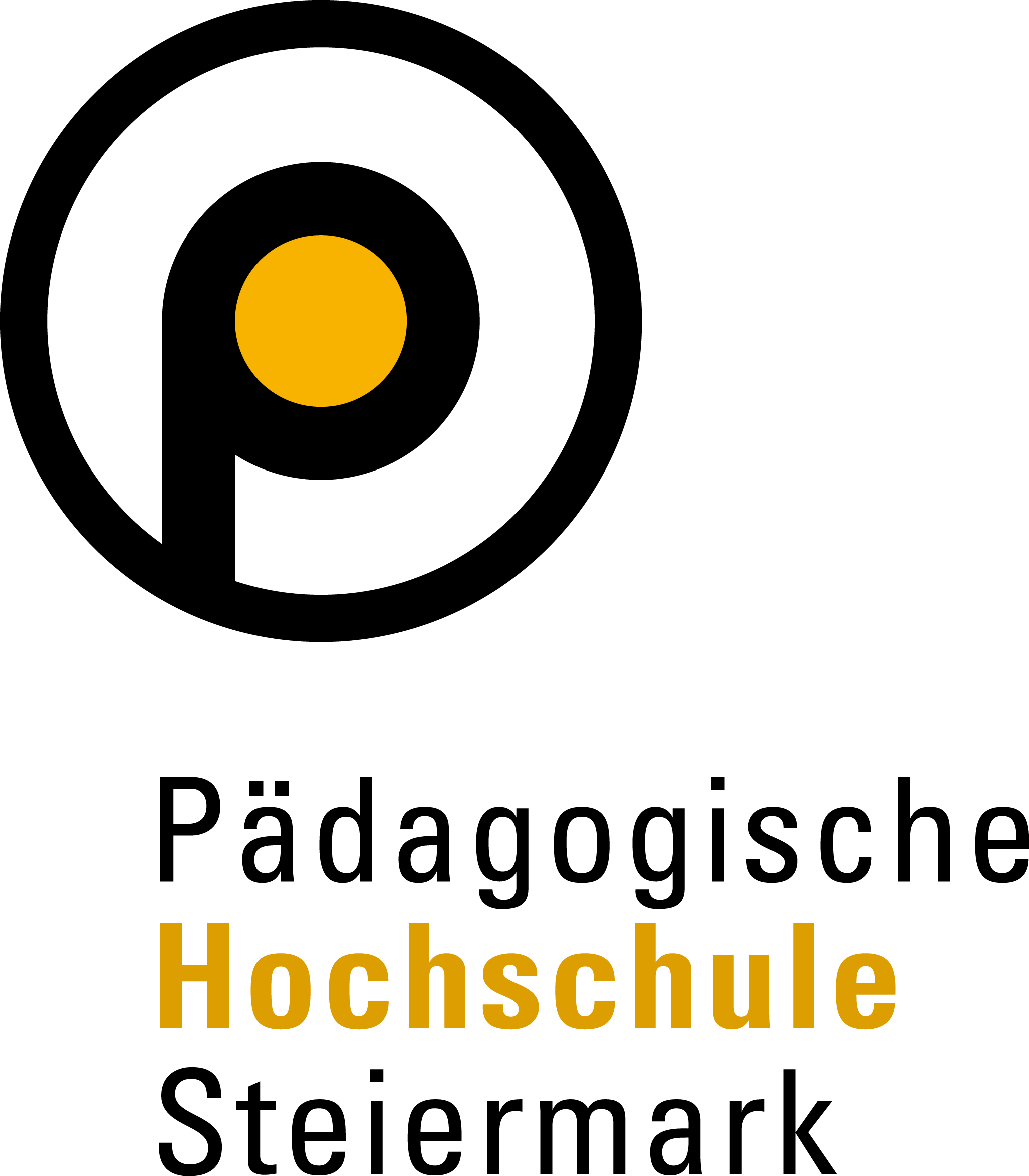The Digital Lab for Inclusion is designed as part of the Research Center for Inclusive Education (RCIE) and is being developed into a research and experimental field for schools and universities. The aim is to develop and test new individualized digital methods and tools that support inclusive and differentiated teaching.
It enables the implementation of inclusive concepts and the use of adaptive technologies in the classroom, it promotes research on these topics and contributes to the digital and inclusive transformation of the education system.
"Speaking with the help of a tablet, reading with the help of hands: The diverse possibilities of assistive technologies"
That was the title of a workshop on Monday, 13.02.2023 as part of the "Uni for Children" workshop week. The two RCIE researchers Katharina Maitz and Jessica Berger asked the pupils of a secondary school in Graz the following questions: How can you communicate using a tablet using only symbols? How can you create drawings that can not only be viewed but also be touched with your fingers?
In search of the answers to these exciting questions, the students got to know a large collection of assistive technologies from the Digital Lab for Inclusion and tested their use in an experimental way. They mastered tricky tasks at five stations:

At this station, the pupils were not only asked to reflect on what makes each of them special, but also to draw it. By using the "swell printer", these drawings became tangible and were to be "read" by the classmates simply by touch.
"A crazy school trip" was the theme of this story, which works best when the story is invented and told together. So each of the five groups came up with a part of the story and recorded it on the Anybook reader, stored on a sticker. In this way, the acoustic information could be passed on and continuously added to.
Not having a voice doesn't mean you can't speak. The pupils learned this by playing "Who am I?", where they were only allowed to answer using the tablet and the "GoTalkNow" app for assisted communication.
Using supported, symbol-based communication on a tablet, it is not only possible to respond, but also to tell stories. The pupils told each other about their own pets or which pets they would like to have. In doing so, they learned that it is also possible to be heard without speaking.
The students were also able to express their creativity with digital drawing. The use of two different computer mice (BIGtrack 2 and n-Abler Joystick) proved that this can work just as well when movement skills are limited. This resulted in very individual versions of the shared classroom.
Experimenting with assistive technologies seemed to be a lot of fun for the students, led to some 'aha'-effects and stimulated thought processes on how to create a shared classroom for everyone.
Here you can find details about the program of the "University for Children" in Graz: https: //www.kinderunigraz.at
End of this section.
To the overview of the page areas.
Start of the page section:
End of this page area.
To the overview of the page areas.
Cooperation RCIE with the Digital Learning Lab at MS St. Leonhard!
In July 2021, a new partnership was successfully initiated for the establishment of the Digital Lab for Inclusion: As part of the renewal of an existing usage agreement between the University College of Teacher Education Styria and the municipality of Graz for the use of the Digital Learning Lab at MS St. Leonhard, RCIE was also included in this agreement in consultation with and supported by the University College of Teacher Education Styria.

In this cooperation, the Digital Lab for Inclusion acts as an extension of the Digital Learning Lab and opens up new opportunities for research-led inclusive school and teaching development at the Digital Campus Graz. Special attention will be paid to digital accessibility and accessibility and the range of services will be expanded with tools for special solutions in the context of specific participation needs of various disabilities or chronic illnesses. In the winter semester 21/22, RCIE began its research and experimental work on the Digital Campus in cooperation with PHSt, the municipality of Graz and MS St. Leonhard and the cooperation agreement is valid until 2025.


